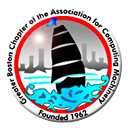Guided Navigation: a Multidimensional Approach to Information Architecture
New search and multidimensional navigation solutions that bridge structured and unstructured data are proving to help users more easily find what they're looking for in appropriate information sources, as borne out by academic and commercial case studies. We've scaled Endeca's solution to this problem, called Guided Navigation, by 5 orders of magnitude since our first deployment in 1999. Along the way, we've identified unexpected scaling barriers both on the backend, and from the end-user's point of view. This talk will address some of these critical scalability barriers, and present our solutions to the problems.
In the talk we'll discuss:
* The "Million or None" Problem
* Faceted Navigation
* Guided Navigation as a Scalable Solution
Endeca is a Boston area startup that has achieved success developing a new class of search engine that supports incremental search, which allows successive refinement in the search process. Its technology has been adopted recently by companies like Fidelity and barnesandnoble.com. Fritz and Daniel are lead architects for Endeca's search engine technology.
Fritz Knabe
Part of Endeca's founding team, Fritz manages the Infrastructure group that pursues Endeca's core research and development. Previously, he worked on the Legion project, building a wide-area distributed operating system, and later co-founding Applied Metacomputing LLC (now Avaki) to commercialize this research.
Daniel Tunkelang
Also a member of Endeca's founding team, Daniel developed some of the core data structures and algorithms that make Guided Navigation possible and scalable. His previous work in graph visualization included stints at the IBM T.J. Watson Research Center and Bell Labs.
